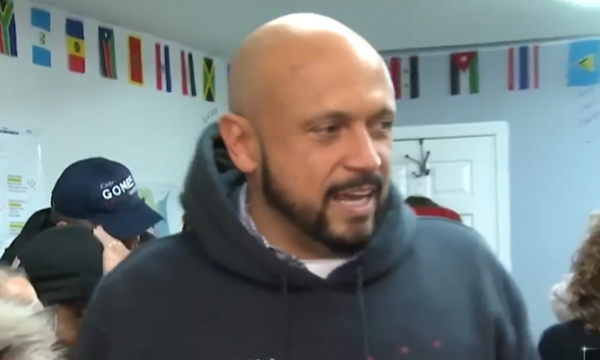China’s National Sword Program Impacts State Recycling Policies
At the start of 2018, China drastically limited imports of 24 types of plastic, paper and other scrap materials. The goal of its new “National Sword” environmental policy is a cleaner, greener China, after years of being the world’s primary destination for recycling and trash exports.
China had actually begun limiting such imports as early as 2013, under a program then known as Operation Green Fence. But the new National Sword program marked a major escalation, one that is already having a dramatic effect on North American recyclers.
Until recently, the U.S. typically exported about one-third of its recyclable wastes – and China took half of it. In 2016, for example, the U.S. on average shipped 4,000 containers per day of recycling to China alone. Today, with that number reduced by 90-95 percent, only about 100 containers a day are now being shipped overseas. This is not only having a significant impact on material exports, but it is also dragging down state recycling rates, because if no markets are found for recyclable materials, they end up in landfills.
Countrywide Impact
States from coast to coast are feeling the impact. Recycling operations in western states, such California, Washington, Nevada, New Mexico, Idaho, Alaska, Hawaii, and Montana, have all experienced major disruptions.
Oregon in particular has been hit hard. U.S. Sen. Ron Wyden of Oregon even co-signed a letter to the Chinese ambassador in January asking for more dialogue in hopes of relaxing this policy. Recyclers throughout the state have struggled to find new markets for recyclable materials, and some have had to request permission to dispose of them instead. As of April 26, the Oregon Department of Environmental Quality (DEQ) had granted 22 disposal requests. DEQ emphasizes that such requests are only granted after “all other options are exhausted,” and it maintains that they still account for a very small percentage of state’s recyclable wastes.
Oregon DEQ’s broader priority is to move toward a sustainable materials management system (SMMS), though that does not help solve the near-term material market challenges. To address the current crisis, DEQ is sponsoring regular stakeholder meetings on the topic.
Meanwhile, states all up and down the Atlantic coast are also feeling the impact.
In Massachusetts, the local Department of Environmental Protection (DEP) began fielding questions from businesses and municipalities last fall. Due to capacity issues due to slower processing speeds (as well as other extenuating circumstances), the DEP has issued at least 31 disposal waivers for unsorted single-stream material.
DEP has also been hosting discussions on the implications of China’s import policies, sharing contamination guidance such as the “Recycling IQ Kit,” and promoting a range of grants and loans that are available to recycling operations. At its annual MassRecycle conference on Mar. 23, DEP officials and industry representatives said they don’t expect this situation to improve in the near-term. Attendees shared ideas on reducing contamination and educating residents, but few thought that either method would be effective enough to avoid rising contract costs for handling recyclables.
In Maine, too, recycling operators such as EcoMaine, Casella and Coastal Recycling have all reported difficulty in recent months at selling recyclables, particularly mixed paper. According to the Portland Press Herald, some new markets have been found in the Northeast and Canada, as well as in southeast Asia, but prices are down across the board.
States in the middle of country have not been spared, either. Minnesota is actively looking to develop new domestic markets for both mixed plastics and paper. Officials hope that if they can “pelletize” recycled plastics, they may find markets for them in the upper Midwest. To do so, however, will take both money and time. As for paper, the state is exploring ways to convert it into “a cellulose product that can be made into something else,” rather than only recycling it back into paper.
Going Forward
While an immediate resolution is not on the horizon, state environmental agencies and recyclers have begun implementing reforms in hopes of stabilizing markets. Such measures have included nurturing new applications for recycled goods, both here and abroad, and educating consumers with a goal of encouraging waste reduction. There is no silver bullet, but attention and effort are being focused both on finding solutions for materials and on setting more reasonable state goals.
In the meantime, some recycling programs in the United States will continue to experience reduced market prices for their material, and continued volatility can be expected. For the foreseeable future, recycling rates and goals will continue to be under pressure, and states will struggle to meet them.


